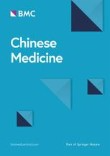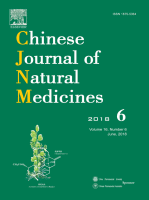Bile Acid
How to submit an article:
- Registered users can submit any published journal article that has a unique DOI (Digital Object Identifier) name or link to Research Hub.
- For example, you can paste the full DOI link:
https://doi.org/10.1109/5.771073or just the DOI name:10.1109/5.771073into the field above and click submit. - The person who is first to submit a valid article to Research Hub will forever be credited for it, and every article submission earns you +6 Research Points.
Published research studies are articles that present the findings of original research that has undergone a peer-review process and has been made publicly available in scholarly journals, books or other media.

Effects of kiwi fruit (Actinidia chinensis) polysaccharides on metabolites and gut microbiota of acrylamide-induced mice
2023 Feb 06 Frontiers in Nutrition Chen M, Chen X, Wang K, Cai L, Liu N, Zhou D, et al.
Animal Study Bile Acid Gut Microbiota KiwifruitKiwifruit polysaccharides may alleviate the toxic effects of acrylamide by improving gut health and enhancing bile acid metabolism.

Si-Wu-Tang ameliorates fibrotic liver injury via modulating intestinal microbiota and bile acid homeostasis
2021 Nov 04 Chinese Medicine Xue X, Wu J, Ding M, Gao F, Zhou F, Xu B, et al.
Si-Wu-Tang (SWT) decreased inflammatory response, reconstructed gut microbiota-mediated bile acid (BA) homeostasis as well as activated farnesoid X receptor (FXR) pathways, which eventually protected against CCl4-induced fibrotic liver injury.
Animal Study Si Wu Tang
Mechanisms exploration of Angelicae Sinensis Radix and Ligusticum Chuanxiong Rhizoma herb-pair for liver fibrosis prevention based on network pharmacology and experimental pharmacologylogy
2021 Apr Chinese Journal of Natural Medicines WU JZ, LI YJ, HUANG GR, XU B, ZHOU F, LIU RP, et al.
Angelicae Sinensis Radix (Danggui) and Ligusticum Chuanxiong Rhizoma (Chuan Xiong) herb-pair (DC) prevents the development of liver fibrosis by inhibiting collagen deposition, decreasing inflammatory reactions and bile acid accumulation, which provides insights into the mechanisms of herb-pair in improving liver fibrosis.
Network Pharmacology Chuan Xiong
Integrated metabolomics and network pharmacology approach to reveal immunomodulatory mechanisms of Yupingfeng granules
2021 Feb Journal of Pharmaceutical and Biomedical Analysis Li M, Gao Y, Yue X, Zhang B, Zhou H, Yuan C, et al.
YPFG influences the metabolism of bile acids and phospholipids. Flavonoids and saponins in YPFG were the main active components responsible for its immune-modulating effects. These components improved bile acid metabolism by enhancing the expression of certain proteins.
Network Pharmacology Immunomodulation
The Cholesterol-Lowering Effect of Oats and Oat Beta Glucan: Modes of Action and Potential Role of Bile Acids and the Microbiome
2019 Nov 27 Frontiers in Nutrition Joyce SA, Kamil A, Fleige L, Gahan CGM
Theoretical Article Review Article Cardiovascular Disease Beta Glucan Gut Microbiota OatsConsumption of oat β-glucan may lower cholesterol and risk of cardiovascular disease by altering gut bacteria and their effects on bile acid and cholesterol metabolism.
Research insights are moderated by the Research Hub team and offer an at-a-glance overview of interesting research findings.

2023 Frontiers in Nutrition
Kiwifruit polysaccharides may alleviate the toxic effects of acrylamide by improving gut health and enhancing bile acid metabolism.
Animal Study Gut Microbiota Kiwifruit
Effects of kiwi fruit (Actinidia chinensis) polysaccharides on metabolites and gut microbiota of acrylamide-induced mice
Chen M, Chen X, Wang K, Cai L, Liu N, Zhou D, et al.

2019 Frontiers in Nutrition
Consumption of oat β-glucan may lower cholesterol and risk of cardiovascular disease by altering gut bacteria and their effects on bile acid and cholesterol metabolism.
Theoretical Article Beta Glucan Cardiovascular Disease Gut Microbiota Oats
The Cholesterol-Lowering Effect of Oats and Oat Beta Glucan: Modes of Action and Potential Role of Bile Acids and the Microbiome
Joyce SA, Kamil A, Fleige L, Gahan CGM

2019 Nature Communications
Pu-erh tea was found to lower triglyceride and total cholesterol levels more significantly than green, oolong, or black teas.
Experimental Study Cholesterol Digestive Health Fatty Liver Disease Pu-Erh Tea Theabrownin
Theabrownin from Pu-erh tea attenuates hypercholesterolemia via modulation of gut microbiota and bile acid metabolism
Huang, F., Zheng, X., Ma, X. et al.
Review Articles
Review articles summarise and critically evaluate the current state of research on a specific topic or field by synthesising multiple primary research studies.
Clinical Trials
Clinical trials are research studies that involve people and are conducted to evaluate the safety and efficacy of new treatments or interventions, such as drugs, medical devices, or behavioural therapies.
Study Protocols
Published study protocols are detailed plans that outline the objectives, methodology, statistical analyses, and organisation of a research study that have been made publicly available for others to review and use as a reference.
Presentation Slides

Animal Study
Kiwifruit polysaccharides may alleviate the toxic effects of acrylamide by improving gut health and enhancing bile acid metabolism.
Chen M, Chen X, Wang K, Cai L, Liu N, Zhou D, Jia W, Gong P, Liu N, Sun Y

Theoretical Article
Consumption of oat β-glucan may lower cholesterol and risk of cardiovascular disease by altering gut bacteria and their effects on bile acid and cholesterol metabolism.
Joyce SA, Kamil A, Fleige L, Gahan CGM

Experimental Study
Pu-erh tea was found to lower triglyceride and total cholesterol levels more significantly than green, oolong, or black teas.
Huang, F., Zheng, X., Ma, X. et al.
Executive Summary
Write an executive summary in the form of a blog article on the topic of "Research into Chinese medicine treatment for Bile Acid" summarising the research below and using language that can be easily understood by patients and avoiding medical jargon using a professional and caring tone of voice.
Write an executive summary in the form of a blog article on the topic of "Researched Chinese medicine treatments for Bile Acid" summarising the research below in an objective and easy to understand way, and using language that can be easily understood by patients. Group the article into Chinese medicine treatments first, followed by nutrition and other treatments. Avoid using medical jargon and use a professional and caring tone of voice.
Write me a concise but easy to understand executive summary on the topic of "Chinese medicine treatments for Bile Acid" based on the following research that I will give you. Your summary should be 2 paragraphs long in Australian English spelling and include references to the studies.
A Animal Study published in 2023 in the journal Frontiers in Nutrition found that Kiwifruit polysaccharides may alleviate the toxic effects of acrylamide by improving gut health and enhancing bile acid metabolism. In this study, the team explored the potential protective effects of kiwifruit polysaccharides on disorders induced by acrylamide (a toxic ingredient found in high-temperature, carbohydrate-rich food) on gut microbiota and systemic metabolism. They measured changes in gut microbiota and serum metabolites in mice subjected to acrylamide-induced toxicity, focusing primarily on the effects on mice's bodily features, liver health, and liver enzyme activity. The results revealed that treatment with kiwifruit polysaccharides not only improved the mice's overall health and liver function but also restored the balance in their gut microbiota by increasing microbial diversity and the abundance of beneficial bacteria. Furthermore, it was found that the polysaccharides had a significant impact on amino and bile acid-related metabolic pathways, proving their potential in protecting against toxicity. A strong correlation was also found between certain bacteria and the critical metabolites of bile acid metabolism, providing a deeper understanding of the protective mechanisms of kiwifruit polysaccharides.
A Theoretical Article published in 2019 in the journal Frontiers in Nutrition found that Consumption of oat β-glucan may lower cholesterol and risk of cardiovascular disease by altering gut bacteria and their effects on bile acid and cholesterol metabolism. The research paper focused on studying the impact of oat β-glucan on cholesterol levels and cardiovascular disease risk. The methodology revolved around examining how consumption of oat β-glucan might change the gut microbiota, particularly bacterial species that influence bile acid metabolism and the production of short chain fatty acids. These factors are crucial regulators of cholesterol homeostasis in the host body. The research thus looked into the repercussions on bile acid metabolism, reverse cholesterol transport, short-chain fatty acid production, bacterial metabolism of cholesterol, and microbe-host signaling. The researchers found that oat β-glucan appears to have a significant effect on both the host's cholesterol levels and the composition and functionality of their gut microbiota, which in turn impacts bile acid metabolism and cholesterol homeostasis. It creates a potentially beneficial scenario where intestinal cholesterol may be removed for excretion. The results suggest that the benefits attributed to oat β-glucan are multifaceted and likely involve the regulation of complex interactions between microbes and the host at the level of the gastrointestinal interface. These novel insights demonstrate an interesting relationship between diet, gut microbiota, and host cholesterol metabolism.
A Experimental Study published in 2019 in the journal Nature Communications found that Pu-erh tea was found to lower triglyceride and total cholesterol levels more significantly than green, oolong, or black teas. Comparative studies using rodents treated with Pu-erh tea, green tea, and black tea provided supporting evidence that fully fermented Pu-erh tea is more effective in causing hypolipidemic and hypocholesterolemic effects compared to other partially fermented and non-fermented teas.
Moderation Tools
Topic
Sign In
Users not signed in are limited to viewing the 5 most recent items of content.